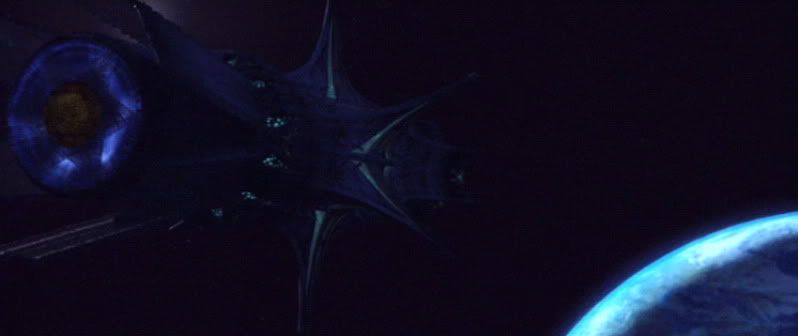To me, the Star Trek movies, while not unenjoyable, are in the end basically bad. TMP is a derivative
2001 knockoff, right down to Spock's line about the "possible next stage of our evolution," where the "evolution" in question is not Darwinian evolution through random mutations, but a mystical, teleologically-oriented conception of evolution with its ultimate goal in some kind of transcendence. There's that same theme about
homo sapiens being overwhelmed, or bested, by the technology of their own making, and that same attempt at an epic take on space exploration. The latter is much more successful in
2001, because TMP can't seem to decide whether it wants to be mainly an
epic or a drama, and fails as either. But while TMP can still be considered a work of art, the rest of the films are little more than crowd-pleasing hackwork. As hackwork, some (TWOK and TVH) succeeded better than others (TSFS and TFF), but really they were never intended to do more than earn a certain box office return and then fade into oblivion. The problems with TWOK, for example, are well-known: the sudden technological retrogression, unexplained (and unexplainable), compared to TOS and TMP; Terrell as the beginning of the trend (to continue in subsequent films) of unrealistic incompetence of (presumably trained and experienced) Starfleet personnel (other than the main characters, of course) for the sake of the plot; the lack of any plausible motivation of the main villain (Khan acts like a mindless zombie whose sole purpose is to be evil and stupid, and die in the end after causing sufficient havoc to create some drama); the departure from science fiction, based on any real science or technical plausibility, with that ridiculous "genesis bomb" (does this even need comment?). The rest of the TOS films have similar weaknesses. I'm not going to comment on the TNG movies due to admitted ignorance, but I think it is safe to say that the best TOS episodes tower over the TOS films as earnest attempts at quality science fiction.


